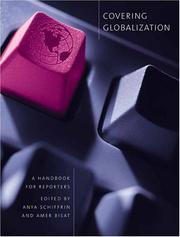| Listing 1 - 6 of 6 |
Sort by
|
Book
ISBN: 9781138205635 9781315466415 9781315466385 9781138205673 Year: 2017 Publisher: London ;New York Routledge
Abstract | Keywords | Export | Availability | Bookmark
 Loading...
Loading...Choose an application
- Reference Manager
- EndNote
- RefWorks (Direct export to RefWorks)
Combining the insights of a seasoned practitioner with the academic rigor of a meticulous policy and risk analyst, the author discusses the major obstacles to peacebuilding that need to be removed before war-torn countries can move towards peace, stability, and prosperity. As Secretary-General Antonio Guterres assumes leadership in January 2017, a top priority must be to address the bleak peacebuilding record where over half of the countries under UN watch relapse back into conflict within a decade. While policy debate and the academic literature have focused on the security, political, and social aspects of the war-to-peace transition, this book focuses on the 'economic transition' - that is, 'economic reconstruction' or 'the political economy of peace' - which, in the author's view, is the much-neglected aspect of peacebuilding. The book argues that rebuilding war-torn states effectively has acquired a new sense of urgency as extremist groups increasingly recruit people by providing jobs and services to those deprived of them due to government and economic failures. Based on past lessons and best practices of the last quarter of a century, the author makes recommendations to move forward and improve the record.
Book
ISBN: 0191608106 9786611978570 1281978574 0191553395 Year: 2008 Publisher: Oxford ; New York : Oxford University Press,
Abstract | Keywords | Export | Availability | Bookmark
 Loading...
Loading...Choose an application
- Reference Manager
- EndNote
- RefWorks (Direct export to RefWorks)
Post-conflict economic reconstruction is a critical part of the political economy of peacetime and one of the most important challenges in any peace-building or state-building strategy. After wars end, countries must negotiate a multi-pronged transition to peace: Violence must give way to public security; lawlessness, political exclusion, and violation of human rights must give way to the rule of law and participatory government; ethnic, religious, ideological, or class/casteconfrontation must give way to national reconciliation; and ravaged and mismanaged war economies must be reconstructed a
Book
Year: 2011 Publisher: Washington, DC : U.S. Institute of Peace,
Abstract | Keywords | Export | Availability | Bookmark
 Loading...
Loading...Choose an application
- Reference Manager
- EndNote
- RefWorks (Direct export to RefWorks)
Book
Year: 2011 Publisher: Washington, DC : U.S. Institute of Peace,
Abstract | Keywords | Export | Availability | Bookmark
 Loading...
Loading...Choose an application
- Reference Manager
- EndNote
- RefWorks (Direct export to RefWorks)
Book

ISBN: 9780231506403 Year: 2004 Publisher: New York, NY
Abstract | Keywords | Export | Availability | Bookmark
 Loading...
Loading...Choose an application
- Reference Manager
- EndNote
- RefWorks (Direct export to RefWorks)


ISBN: 9780231506403 9780231131759 Year: 2004 Publisher: New York, N.Y. Columbia University Press
Abstract | Keywords | Export | Availability | Bookmark
 Loading...
Loading...Choose an application
- Reference Manager
- EndNote
- RefWorks (Direct export to RefWorks)
| Listing 1 - 6 of 6 |
Sort by
|

 Search
Search Feedback
Feedback About UniCat
About UniCat  Help
Help News
News